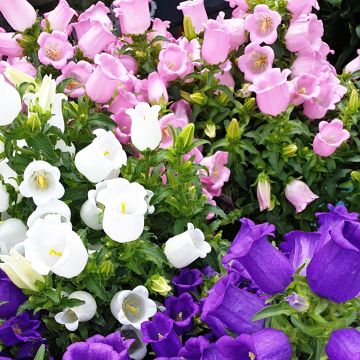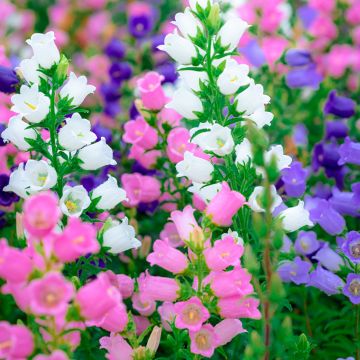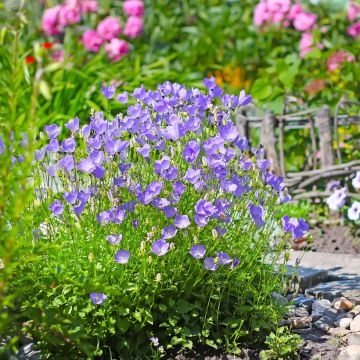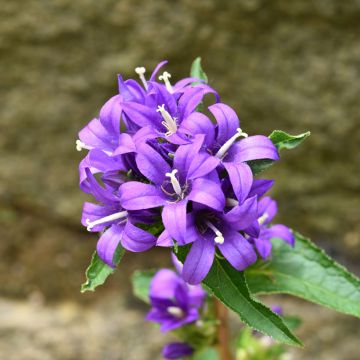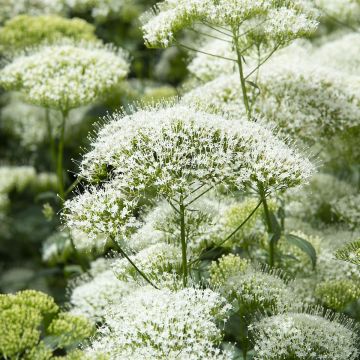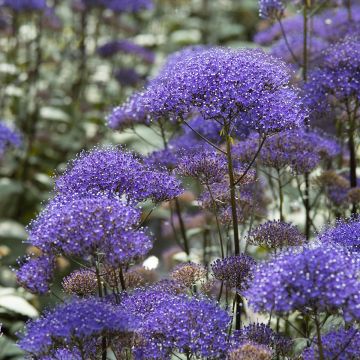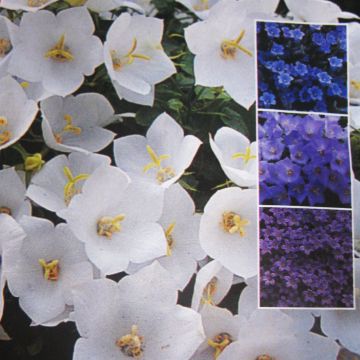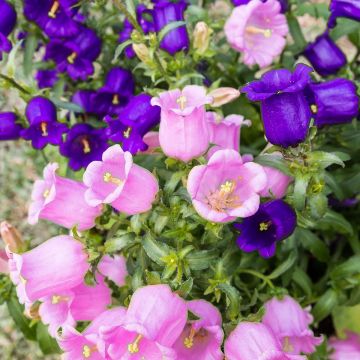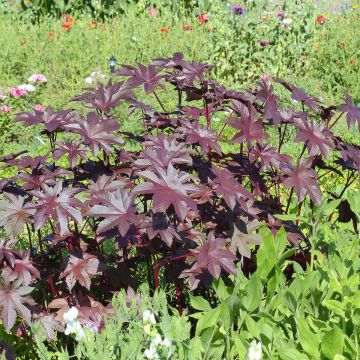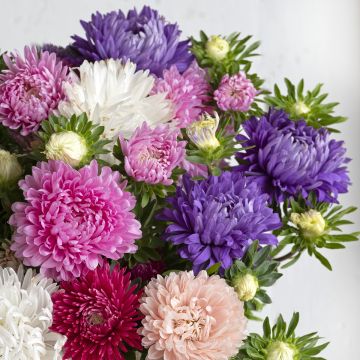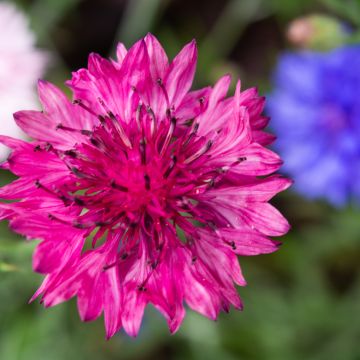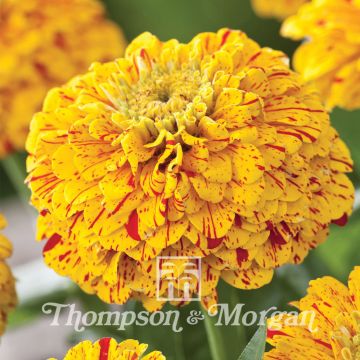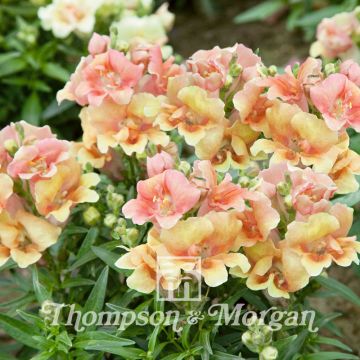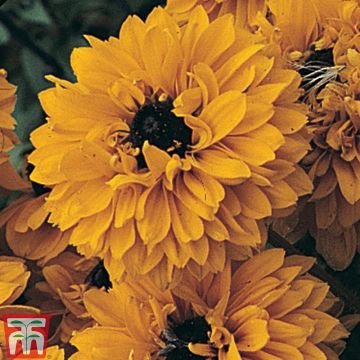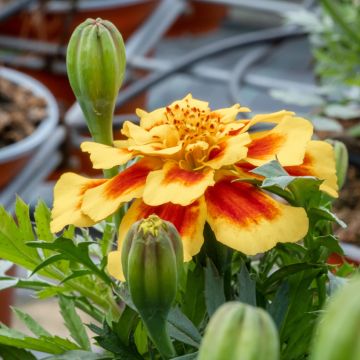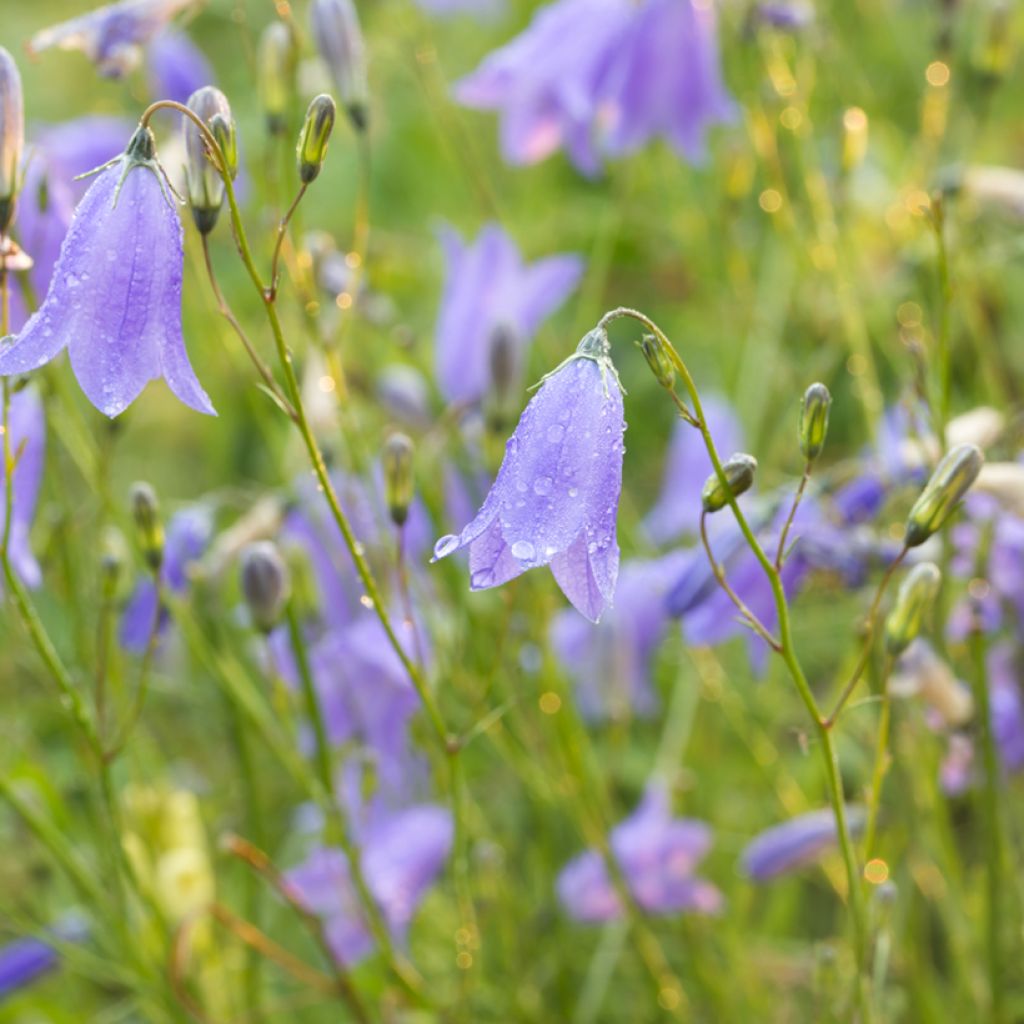

Campanula rotundifolia - Scottish Bluebell Seeds
Campanula rotundifolia - Scottish Bluebell Seeds
Campanula rotundifolia
Scottish Bluebell, Harebell, Fairy Bell, Round-leaved Bellflower
I sowed these seeds in spring and then transplanted them into pots. They are still very small. My problem: Slugs love them and eat them as they grow, spike by spike.
Nathalie GOEDERT, 22/09/2016
Special offer!
Receive a €20 voucher for any order over €90 (excluding delivery costs, credit notes, and plastic-free options)!
1- Add your favorite plants to your cart.
2- Once you have reached €90, confirm your order (you can even choose the delivery date!).
3- As soon as your order is shipped, you will receive an email containing your voucher code, valid for 3 months (90 days).
Your voucher is unique and can only be used once, for any order with a minimum value of €20, excluding delivery costs.
Can be combined with other current offers, non-divisible and non-refundable.
Home or relay delivery (depending on size and destination)
Schedule delivery date,
and select date in basket
This plant carries a 6 months recovery warranty
More information
We guarantee the quality of our plants for a full growing cycle, and will replace at our expense any plant that fails to recover under normal climatic and planting conditions.
Would this plant suit my garden?
Set up your Plantfit profile →
Description
Campanula rotundifolia, commonly known as Scottish Bluebell or Harebell, is a lovely perennial wild flower found throughout the Northern hemisphere. Between June and October, delicate, bell-shaped, nodding, blue-violet flowers appear on graceful stems. The plants grow to a height of about 50 cm in full bloom. Ideal for rock gardens, borders, cottage gardens and wild flower gardens in light, well-drained soil and part shade.
Campanula rotundifolia is a perennial herbaceous plant of the Campanulaceae family, native to the Northern hemisphere. The plants form basal rosettes of rounded leaves. Between June and October (or May to November depending on the growing conditions), numerous, very slender, 50 cm tall stems emerge carrying long, lanceolate, light green leaves with a slightly toothed margin, and delicate blue-violet blooms. The nodding flowers are bell-shaped, hence the common names Scottish bluebell, harebell and fairy bell. They are a magnet to nectar foraging insects. Pollinated flowers give way to seed heads, filled with small seeds that self-sow easily in the right conditions.
Harebells are one of the prettiest wildflowers, bringing a natural grace and charm to informal flower beds, rock gardens and borders. They are also popular cutting flowers for wildflower bouquets and arrangements. They thrive in most soils providing they are light and well-drained, preferably shaded from hot afternoon sun in warmer regions.
Report an error about the product description
Flowering
Foliage
Plant habit
Botanical data
Campanula
rotundifolia
Campanulaceae
Scottish Bluebell, Harebell, Fairy Bell, Round-leaved Bellflower
Northern Europe
Other Campanula (Bellflower) seeds
View all →Planting and care
Sow in late spring/early summer in well-prepared, loose, light soil. Scatter the seeds then cover with ½ cm of soil or compost, firm down gently and water. Make sure the soil stays moist (but not waterlogged) until germination. As soon as the seedlings are big enough to be handled (approximately 15 cm tall), transplant them to their definitive position. If possible, choose a shady spot. Add a good shovelful of compost in each planting hole. Space your plants 40 cm apart. Flowering will take place during the second year.
Remove spent flowers regularly for tidier plants and to encourage fresh blooms.
Sowing period
Intended location
-
, onOrder confirmed
Reply from on Promesse de fleurs
Similar products
Haven't found what you were looking for?
Hardiness is the lowest winter temperature a plant can endure without suffering serious damage or even dying. However, hardiness is affected by location (a sheltered area, such as a patio), protection (winter cover) and soil type (hardiness is improved by well-drained soil).

Photo Sharing Terms & Conditions
In order to encourage gardeners to interact and share their experiences, Promesse de fleurs offers various media enabling content to be uploaded onto its Site - in particular via the ‘Photo sharing’ module.
The User agrees to refrain from:
- Posting any content that is illegal, prejudicial, insulting, racist, inciteful to hatred, revisionist, contrary to public decency, that infringes on privacy or on the privacy rights of third parties, in particular the publicity rights of persons and goods, intellectual property rights, or the right to privacy.
- Submitting content on behalf of a third party;
- Impersonate the identity of a third party and/or publish any personal information about a third party;
In general, the User undertakes to refrain from any unethical behaviour.
All Content (in particular text, comments, files, images, photos, videos, creative works, etc.), which may be subject to property or intellectual property rights, image or other private rights, shall remain the property of the User, subject to the limited rights granted by the terms of the licence granted by Promesse de fleurs as stated below. Users are at liberty to publish or not to publish such Content on the Site, notably via the ‘Photo Sharing’ facility, and accept that this Content shall be made public and freely accessible, notably on the Internet.
Users further acknowledge, undertake to have ,and guarantee that they hold all necessary rights and permissions to publish such material on the Site, in particular with regard to the legislation in force pertaining to any privacy, property, intellectual property, image, or contractual rights, or rights of any other nature. By publishing such Content on the Site, Users acknowledge accepting full liability as publishers of the Content within the meaning of the law, and grant Promesse de fleurs, free of charge, an inclusive, worldwide licence for the said Content for the entire duration of its publication, including all reproduction, representation, up/downloading, displaying, performing, transmission, and storage rights.
Users also grant permission for their name to be linked to the Content and accept that this link may not always be made available.
By engaging in posting material, Users consent to their Content becoming automatically accessible on the Internet, in particular on other sites and/or blogs and/or web pages of the Promesse de fleurs site, including in particular social pages and the Promesse de fleurs catalogue.
Users may secure the removal of entrusted content free of charge by issuing a simple request via our contact form.
The flowering period indicated on our website applies to countries and regions located in USDA zone 8 (France, the United Kingdom, Ireland, the Netherlands, etc.)
It will vary according to where you live:
- In zones 9 to 10 (Italy, Spain, Greece, etc.), flowering will occur about 2 to 4 weeks earlier.
- In zones 6 to 7 (Germany, Poland, Slovenia, and lower mountainous regions), flowering will be delayed by 2 to 3 weeks.
- In zone 5 (Central Europe, Scandinavia), blooming will be delayed by 3 to 5 weeks.
In temperate climates, pruning of spring-flowering shrubs (forsythia, spireas, etc.) should be done just after flowering.
Pruning of summer-flowering shrubs (Indian Lilac, Perovskia, etc.) can be done in winter or spring.
In cold regions as well as with frost-sensitive plants, avoid pruning too early when severe frosts may still occur.
The planting period indicated on our website applies to countries and regions located in USDA zone 8 (France, United Kingdom, Ireland, Netherlands).
It will vary according to where you live:
- In Mediterranean zones (Marseille, Madrid, Milan, etc.), autumn and winter are the best planting periods.
- In continental zones (Strasbourg, Munich, Vienna, etc.), delay planting by 2 to 3 weeks in spring and bring it forward by 2 to 4 weeks in autumn.
- In mountainous regions (the Alps, Pyrenees, Carpathians, etc.), it is best to plant in late spring (May-June) or late summer (August-September).
The harvesting period indicated on our website applies to countries and regions in USDA zone 8 (France, England, Ireland, the Netherlands).
In colder areas (Scandinavia, Poland, Austria...) fruit and vegetable harvests are likely to be delayed by 3-4 weeks.
In warmer areas (Italy, Spain, Greece, etc.), harvesting will probably take place earlier, depending on weather conditions.
The sowing periods indicated on our website apply to countries and regions within USDA Zone 8 (France, UK, Ireland, Netherlands).
In colder areas (Scandinavia, Poland, Austria...), delay any outdoor sowing by 3-4 weeks, or sow under glass.
In warmer climes (Italy, Spain, Greece, etc.), bring outdoor sowing forward by a few weeks.






























